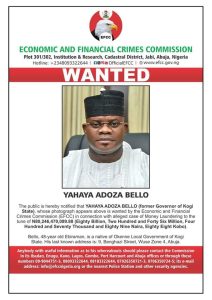Jonathan’s Conference and Federalism: The True Position

A recent statement of Dr. Femi Okunrounmu (a leading member of Afenifere) to the effect that “If Buhari had embarked on the process of implementing the report of the 2014 National Conference, a lot of the present agitation would not have arisen” was an attempt at neutralizing the long-standing Yoruba quest for Federalism, our foundational developmental paradigm, and must not be allowed to stand; all the more so when his call was anchored on some of the resolutions which he would have us believe are indeed in tandem with Federalism.
A closer look at the relevant recommendations confirms that his call is not only misplaced, it arguably indicates a mischievous attempt at a retrospective defense and justification of the political misadventure of his group and fellow travelers among our people in their campaign for the reelection of Goodluck Jonathan at the 2015 polls as a necessary first step towards the next one in 2019 as evidenced by his making Atiku Abubakar their 2019 arrowhead based on Atiku’s recent clamor for Federalism, even when this new found Federalist did not state the way forward to the promised land.
Now, it is the content of a report, material or body of materials and documents rather than their mere existence that should be accorded relevance in any rational inquiry/discourse of its efficacy and value. Our interrogation of the substance/content of the Report together with Dr. Okurounmu’s promotional remarks strongly indicates that the former does not and cannot facilitate or enhance our quest for Federalism while the latter clearly represents a daring attempt to misrepresent and distort the contents of the former in order to hoodwink the unsuspecting public into buying an utterly defective commodity as will now be shown. His remarks in italics and our responses backed with references to the actual recommendations of the Conference where necessary are stated as follows.
(1) Dr. Okurounmu says: “Even though the conference did not approve the present six geo-political zones as the federating units, the Confab strengthens the autonomy of the existing states. For example, it gave each state the power to mobilize and develop its own mineral and other resources. Under this arrangement, oil producing states will be responsible for the exploration of their oil – no external persons will come and pollute their land, but they may work with technical partners on this. States will only pay a fraction of their earnings to the Federal Government. That is how it is done all over the world. If the Niger Delta people are in charge of their oil, they will protect their environment.”
Dr Okunrounmu’s afore-quoted remarks are quite unfaithful to the actual recommendation of the Conference . Below is the actual recommendation on this matter as contained in the Conference Report:
“ Mines and minerals, including oil fields, oil mining, geological surveys and natural gas should be retained in the Exclusive Legislative List but amended to read:- “mines and all minerals, including oil fields, oil mining, geological surveys and natural gas provided that: (a) the governments of states where the mining activities take place shall be involved in matters relating thereto; (b) the government of the federation shall create a special fund to develop mines and minerals in states where such resources are undeveloped.”
The proviso is neither here nor there as not only would the Center retain control through the Exclusive List, it would also provide “special funding” while the “governments of the states shall only be involved” without specifying the type or form of involvement.
Moreover, to expect a Conference to “approve the present six geo-political zones as the federating units” shows a gross misunderstanding of Federalism, in spite of the considerable time and energy Dr. Okurounmu is thought to have spent in advancing the quest, especially within the Yoruba historico-political space that had clearly spelt out over the time our Federalist perspective, which is at par with what is universally agreed to as its defining essence, local variations and peculiarities notwithstanding, that is, it is Peoples that Federate, not territories.
The Egbe Omo Oduduwa, in 1945 did categorically define its pursuit of “True Federalism” as “the propagation of the ideal of a modern Yoruba state and Federal state of Nigeria through the agency of reliable persons who share our ideals.” This notion of “a modern Yoruba State” is socio-culturally specific and not simply territorial; for a ” modern Yoruba State” is essentially existential-cultural albeit without prejudice to non-Yoruba living in Yorubaland. The Yoruba Agenda (1994) defined its pursuit of “True Federalism” as, among others: “the right of the Yoruba of Nigeria (living in Ekiti, Lagos, Ogun, Ondo, Osun and Oyo states) to live under a Regional government within the Federation of Nigeria. The Yoruba Region shall have the right to negotiate with other Nationalities of Nigeria along the laid down principles of True Federalism, justice and equity”. The Draft Yoruba Constitution (2002) says “Yorubaland, existing as an Autonomous nation in a Union of Nigerian Constituent Nationalities, shall be known and styled as “Oduduwa Region”. These are just snippets of what the Yoruba have historically adjudged to be their understanding and pursuit of True Federalism.
(2) Also, the Confab gave neighboring states who feel inclined to merge to do so to form a larger unit and such merger is only subject to the condition that each of the states wants to merge. Such merger must be approved in a referendum by 75 per cent majority and the Houses of Assembly too in the states must also approve the merger by a two-third majority.
Now, merger of States has absolutely nothing to do with Federalism. Federalism is also not a matter of “inclination” but an existential reality for Peoples in a multi-national, multi-cultural and multi-lingual environment. Even if we are to consider mergers, Oyo and Osun States may agree to “merge” while Ogun may distance itself from such a plan which means Federalism in Nigeria will depend on the whims of current but antagonistic hegemonic political forces in those States. This will be making nonsense of Federalism as it will mean the merged States are Federating with Nigeria when a Federal Nigeria should ordinarily result from the Federating peoples that make up Nigeria.
This acceptance of the “merger” principle presupposes the negation of the concept of the Nationality, which is substituted with the factor of territory. The danger inherent in this is that any antagonistic political force could attain power in any State and create unfavorable circumstances against the people’s social and cultural experience in that territory just as we have experienced in Ilorin and are still experiencing now. Federalism is thus not about states agreeing to merge, but PEOPLES as social and cultural constructs, as occupiers of specific geo-political spaces, who may now organize themselves into States or Regions or Zones for administrative purposes.
(3) The Confab further gave each state the right to have its own police to take care of its security, including having lower level of police even at the local government level.
This is a complete distortion of Federalism. That a state will have its own police has nothing to do with Federalism. The UK has a decentralized police force, almost akin to what Dr. Okurounmu referred to as state police, yet the UK is a unitary State. State Police is a consequence and not the cause of Federalism as Dr. Okurounmu would want us to believe. Right now, States depend almost entirely on federal allocations or loans to pay their workers’ salaries; and it is this allocation that will be saddled with funding state police which translates into such state police being underfunded and unable to achieve its maximum potential in terms of training and professional advancement.
Once a state police is under the control of the sole Inspector-General who is responsible only to the President or the central authority, such arrangement will not be different from the one that says that the federal government should fund exploitation of mineral resources in states. So having a state police, by itself, does not translate to Federalism. What matters most is the ability of each Component to, among others, establish its own existential paradigms.
(4) We also changed the allocation formula. We reduced the Federal Government’s allocation and gave more to the states and LGs. Those are the aspects that will strengthen fiscal federalism, even with the existing structure.
This is NOT true. Here are the Conference Resolutions:
Revenue Sharing (Vertical Allocation): Review of the sharing of the funds accruing to the Federation Account among the tiers of government. Conference resolved that Government should set up a Technical Committee to determine the appropriate percentages on all matters relating to revenue sharing.
Sharing Formula (Horizontal Allocation): Review of the sharing formula on the basis of allocation of revenue to States using some principles of equality of states, population, land mass and terrain, social development factors (i.e. education, health, and water supply), and Internally Generated Revenue. Conference recommends that Government should set up a Technical Committee to determine the appropriate percentages on all matters relating to revenue sharing.
Resource Control: Conference recognized the need to review the percentage of revenue allocation to States producing oil (and other resources). Conference noted that assigning percentages for the increase in derivation principle require some technical details and considerations and therefore recommends that Government should set up a Technical Committee to determine the appropriate percentage on the issue and advise government accordingly.
What is common to the three recommendations under this head is a recommendation to the government to set up a “Technical Committee” to work out the details and one wonders why a Conference set up to address an important political matter ended up passing the buck to the same government that established it. No wonder Sir Olaniwun Ajayi dismissed the entire Conference business by remarking that they merely went there to play.
Having said all these, what next for the Yoruba Nation? Egbe Omo Oduduwa proposes, in the first instance, that Yoruba People worldwide should reject any call for the implementation of the 2014 Jonathan Conference Report as it is patently anti-Federalist in its spirit and letters. Secondly, the Yoruba Nation(and we recommend this to other Nationalities) should be looking more inwardly and put their acts together in the quest for Re-Formation of Nigeria. Egbe Omo Oduduwa is firmly convinced that the way to go in the historical task of Constitutional Re-Formation of Nigeria is for each Nationality to embark on its own political and Constitutional self-definition to be validated through or at its own Referendum as the basis for a new Nigerian Union. This will enable us to successfully discharge the burden of history rather than fall prey to opportunistic schemes of emergency Federalists.
Shenge Rahman Akanbi, Femi Odedeyi
For and on behalf of Egbe Omo Oduduwa
e-mail: egbeomooduduwa1945@gmail





